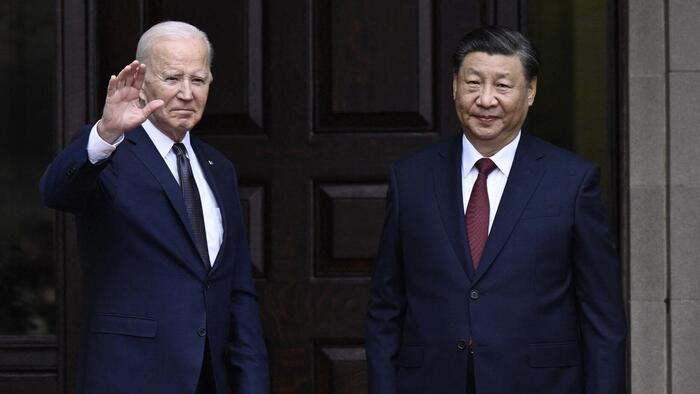In their analysis of the current state of American society and its global standing, James E. Fanell and Bradley A. Thayer draw upon Ronald Reagan’s iconic question posed in the 1980 presidential debate: “Are you better off than you were four years ago?” They contend that the answer for most Americans today is a resounding no, reflecting a trend of worsening conditions in terms of economy, inflation, uncontrolled immigration, and escalating threats to national security. The authors emphasize that not only are citizens suffering economically, but so too are the United States and its allies, who face a significantly more precarious geopolitical environment than four years ago, marked by instability across multiple regions including Europe, the Middle East, and the Indo-Pacific.
The authors highlight that four years prior, there was relative peace in Europe, the Middle East, and the Indo-Pacific; now, this has been upended. The war in Ukraine—sparked by Russia’s brutal invasion—has not only claimed countless lives but has also displaced millions, completely disrupting the long-standing peace in Europe. This conflict is described as a humanitarian disaster with global implications, especially as it escalates into a potential nuclear confrontation. Simultaneously, the Middle East has been rocked by new violence, particularly following Hamas’s attack on Israel and Iran’s aggressive support for terrorist groups. Similarly, in the Indo-Pacific, China’s aggressive maneuvers against U.S. allies signal a troubling reality that is contrasted starkly with the previous era of stability.
At the heart of this instability is the Biden-Harris administration, which the authors assert has adopted a misguided approach to foreign policy, dangerously prioritizing an ideological fixation on “managing America’s decline.” The administration’s shortcomings are particularly alarming regarding its inability to deter Russian aggression. They argue that the U.S. has failed to support its allies and cover critical security interests adequately, as illustrated by the administration’s passive stance toward the Iranian regime’s support for terrorism and military escalation despite their disastrous consequences.
Furthermore, Fanell and Thayer critique the Biden administration’s approach towards China, framing it as a continuation of previous failed “Engagement” policies that neglect the threat posed by the Chinese Communist Party (CCP). Characterized by a willingness to cooperate and appease the CCP, these policies have further emboldened China’s aggressive actions at a time of rising threats to U.S. national security. They argue that this neo-Engagement strategy disregards the realities of the CCP’s expansionist ambitions, which have become increasingly clear as evidenced by China’s bolstering of its military and strategic capabilities.
The authors detail the alarming developments in China’s military capabilities, including the rapid expansion of its nuclear arsenal and increased military activities in contested regions. They cite the construction of missile silos and the introduction of advanced weaponry while contrasting this with the Biden administration’s decline in U.S. maritime power—evident in the reduced size of the Navy and budget allocations that underline the neglect of defense priorities. This has left the U.S. vulnerable to increasingly aggressive maneuvers by the People’s Liberation Army (PLA) and its coercive posture in areas such as the South China Sea and Taiwan.
Concluding their critique, Fanell and Thayer evoke Reagan’s original challenge about national strength and respect. They assert that America, once a pillar of strength and reliability, is now viewed with skepticism by allies and adversaries alike. They warn that the continuation of the current policies, particularly under a potential Kamala Harris presidency, would likely perpetuate the cycle of appeasement and weakness, emboldening adversaries while undermining the foundations of U.S. alliances. They advocate for a pivot back to principles reminiscent of the Reagan era, emphasizing a resolute stance where “the U.S. wins, the CCP loses,” and call for a return to robust and clear policies that would restore America’s position on the world stage.

